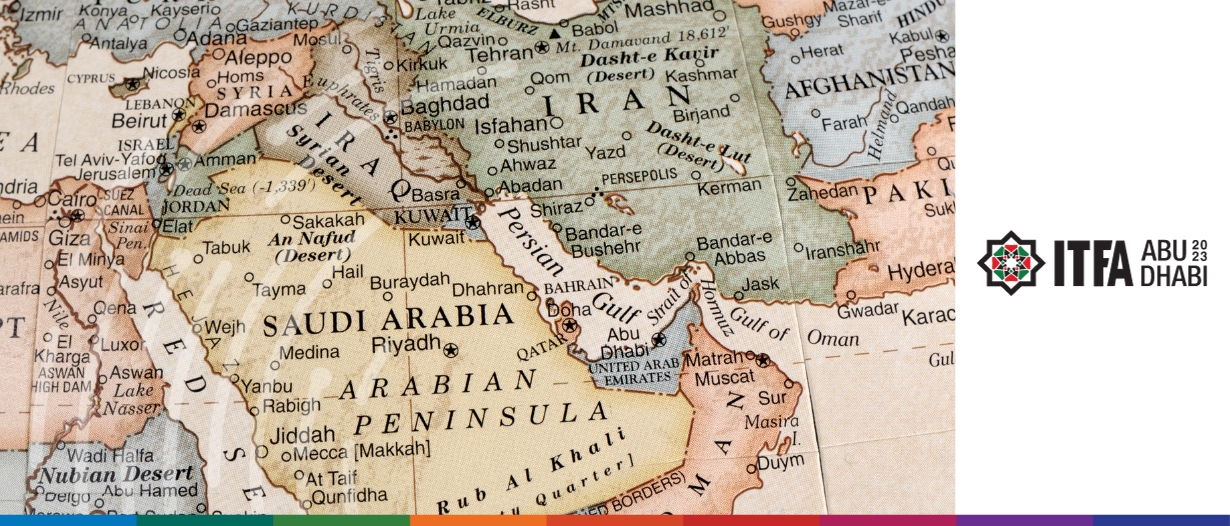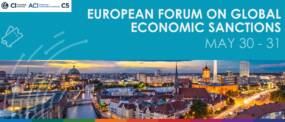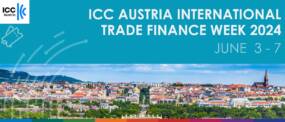Estimated reading time: 6 minutes
The Middle East, strategically situated at the crossroads of Europe, Asia, and Africa, with its substantial oil reserves, has long been a central player in global trade.
Today, this tricontinental hub not only maintains its strategic positioning but also boasts robust infrastructure and government-backed initiatives aimed at economic diversification, paving the way for significant growth and development.
However, despite this potential, global concerns such as persistent inflation and geopolitical tensions weigh on the region’s economic outlook.
While the GCC countries find some refuge in high oil prices and solid balance sheets, the wider Middle East remains susceptible to these trends.
In this episode of Trade Finance Talks, TFG’s Deepesh Patel spoke with Robert Besseling, CEO at Pangea-Risk to explore the current landscape of the Middle East region, shedding light on the opportunities, challenges, and evolving economic prospects in the face of the ongoing events.
The tale of Middle Eastern economies: Shocks, struggles and stability
Enduring a series of global shocks since the 2020 pandemic, Middle Eastern economies have demonstrated exceptional resilience, painting a positive economic outlook for the region.
As Besseling said, “Everything was steering towards regional stability, regional growth, opportunity, and peace.”
However, on October 7th, this sentiment shifted dramatically with the onset of the Israel-Palestine conflict. The sudden escalation of the events has raised concerns that the repercussions could extend beyond the immediate conflict zone and potentially ensue across the entire region.
Besseling noted, “When you take a step back and look at how quickly the events are moving, it makes one wonder, where is the region going to be in the next three to six months?”
Yet, amidst this turbulence, the long-term trajectory points towards a broader normalisation of relations between Israel and the Arab states.
Shortly before the recent conflict, the Israeli-Arab normalisation of relations reached a significant milestone, particularly with the potential for Saudi Arabia to normalise its ties with Israel—a move that could not have been envisioned since 1948.
In light of this, Besseling expressed his optimism about the Middle East’s future economic stability. He confidently stated, “Probably by early 2024, the crucial geopolitical agendas of the GCC, Israel and the US will realign. I think we’ll get back to where we were just a week ago.”
Beyond oil: Economic diversification in the GCC
In an era of economic uncertainty, a national economy reliant on a single, non-renewable source of income is inherently vulnerable. The states of the Gulf Cooperation Council (GCC) are therefore ramping up their efforts to achieve economic diversification, underpinned by their National Visions.
At the forefront are the Gulf’s two prominent pioneers: Saudi Arabia, the world’s leading oil exporter, and the United Arab Emirates, the region’s premier trading hub. Both have been progressively turning their focus towards the non-oil sector. As Besseling asserted, “These are the two real trendsetters in the GCC region.”
Saudi Arabia, in particular, distinguishes itself with its robust diversification ambitions driven by the country’s ‘Vision 2030’ strategies.
Since its launch, the government has been implementing several economic and social reforms including reducing restrictions on women’s employment, the cultivation of new economic sectors, and the establishment of several special economic zones.
Through Saudi Arabia’s determined effort to swiftly put its vision into action, the nation achieved a stellar GDP expansion of 8.7% in 2022 and is currently witnessing signs of its successful economic diversification plans.
Furthermore, Besseling outlined the kingdom’s strategy to decouple its economy from its hydrocarbon dependence stating, “Saudi Arabia has implemented OPEC production caps which has slowed down regional economies. It has done so deliberately to allow non-oil sector sectors to grow and it’s working for Saudi Arabia.”
Presently, Saudi Arabia’s dependency on hydrocarbon revenues is lower than the regional average among other GCC countries, indicating a promising course towards a more balanced economy.
The blueprint for this transformation closely mirrors the successful model adopted by the UAE. As Besseling pointed out, “The UAE has done the same and focused on economic diversification, bringing in more services, manufacturing and logistics sectors.”
Progressively reducing its reliance on hydrocarbons, the country’s non-oil sector has experienced tremendous growth, with the UAE’s Prime Minister, Sheikh Mohammed Bin Rashid Al Maktoum, revealing that the UAE’s non-oil foreign trade skyrocketed to 1.239 trillion dirhams (approximately $337.5 billion) in the first half of 2023.
Besseling said, “The non-oil sector growth has been remarkable and it is driving up the entire country’s economic output.” The UAE’s success story vividly demonstrates the power of economic diversification in driving sustainable growth and stability.
Tapping into growth: Opportunities and challenges for the Middle East
Occupying a pivotal geographical location, and facilitating access to markets in Europe, Africa, and Asia, the Middle East is a central hub in the worldwide movement of goods. Located within this global crossroads lie some of the world’s most important trade routes including the Suez Canal, the Straits of Gibraltar and the Straits of Hormuz.
Building on this advantageous geographical position, Middle Eastern nations are leveraging their strategic geographic centrality to explore uncharted territories, with a keen eye on neighbouring Africa.
This is exemplified by the decision of Saudi Arabia, the UAE and Egypt to join the expanded BRICS group, starting in 2024. The BRICS group, currently comprising Brazil, Russia, India, China and South Africa, collectively represents around 40% of the global population.
Joining the BRICS group is therefore pairing major Middle Eastern countries with the developing world’s biggest consumers and linking them with a huge source of raw materials needed for their manufacturing and industrial plans.
As Besseling stated, “For these economies to grow and diversify their sectors, it is crucial to engage in more beneficiated trade with African countries.”
In addition to exploring new economic frontiers, it is crucial to address the current challenges that some Middle Eastern nations are facing, especially concerning sovereign debt risks.
While a considerable number of the oil-exporting countries within the Middle East have effectively managed to avert immediate sovereign debt risks, the picture is much more challenging outside the borders of the GCC.
A major debt crisis is potentially brewing in the region with Egypt and Iraq at risk of defaulting on their sovereign debt obligations. Such a scenario can lead to catastrophic consequences for their economies.
As Besseling said, “The oil-producing emerging markets, particularly Iraq and Egypt, are facing foreign exchange shortage and that is impacting their debt servicing as well as their imports balance.”
For instance, Egypt, the most populous nation in the Middle East, finds itself in a critical position, grappling with a heavy debt load, rising interest rates and a depreciating currency. The country is facing a profound economic crisis that threatens to disrupt not only its domestic economy but also its foreign policies.
The Russia-Ukraine war further exacerbated the situation, laying bare Egypt’s economic vulnerability due to its longstanding reliance on fuel and food imports which have become too costly for the country to afford. In addition, short-term foreign currency financing has also become increasingly expensive, further compounding the challenge.
In his view, Besseling emphasised the urgency of implementing a fiscal austerity agenda and undertaking a complete liberalisation of the Egyptian pound. According to him, “In 2024, it is key for Egypt to implement a fiscal austerity agenda and to completely liberalise the Egyptian pound. Only then can the country avoid a sovereign default scenario.”
 Australia
Australia Hong Kong
Hong Kong Japan
Japan Singapore
Singapore United Arab Emirates
United Arab Emirates United States
United States France
France Germany
Germany Ireland
Ireland Netherlands
Netherlands United Kingdom
United Kingdom






Comments are closed.